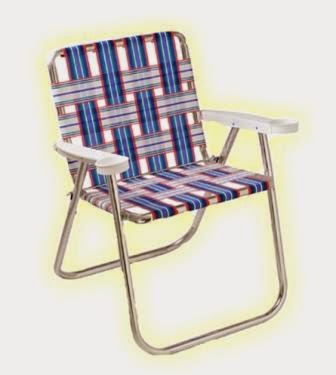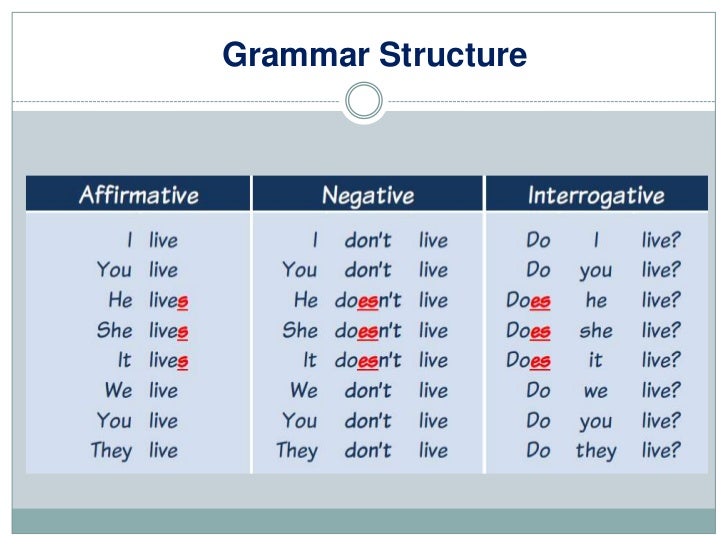Vocabulary
ANTIQUES
CABINET
CRYSTAL
CRYSTAL GLASSES
DESK
FIREPLACE
GHOST / PHANTOM
TOUCHING
SHE'S LEAVING
PEARL NECKLACE
PORTRAIT PAINTING
SHE'S SCARED
SILVER
STUDY
GRAY-HAIRED MAN WEARING GLASSES
The Phantom
OL: This is my husband's study.
WIB: Oh.. What a lot of silver.
OL: Don't worry. You don't have to polish that every day. Once a week is quite sufficient.
WIB: And what about all those glasses in the cabinet?
OL: They are antique crystal, and they are very valuable. You mustn't touch them.
WIB: So... I clean everything except the glasses.
OL: That's right. But you don't need to tidy the desk. My husband gets very upset if anybody touches his papers.
WIB: Very well, madam. Anything else?
OL: Oh, yes. You can't come in here when my husband is not around. Nobody can enter his room without him being here. My husband will be watching your work.
WIB: When can I start?
OL: You can start right now.
WIB: But he's not here now.
OL: Oh, yes he is. Only you can't see him. His spirit is here and he is happy that you will look after his study. He adores his study. And I can see that he likes you.
WIB: Oh, does he? How do you know?
OL: He's a ghost, you see. After a while you'll be able to feel his spirit. Do you believe in ghosts?
WIB: I... Yeah.. Yes, of course.
OL: He died 10 years ago. And he always wants me to take care of his study. He used to spend hours and hours here. When he was alive.
WIB: Oh, well. Anyway, madam. The work seems very interesting. But I'll start tomorrow. Good bye madam. See you tomorrow. Very interesting. Good bye. Say good bye to your husband for me.
Grammar
Future tenses
There are several different ways in English that you can talk about the future. This page is an introduction to the most important ones:- Predictions/statements of fact
- Intentions
- Arrangements
- Scheduled events
- Intentions
- Arrangements
- Scheduled events
Predictions/statements of fact
The auxiliary verb will is used in making predictions or simple statements of fact about the future.- The sun will rise at 6.30 tomorrow.
- Lunch break today will be 10 minutes longer than usual.
- In the year 2050 all students will have their own computers in school.
- If you help me, I will help you.
- Do you think she will come soon?
- You won't pass your exams if you don't start working harder.
- I know my parents won't let me go to the party.
- Will it snow for Christmas?
- I know she's sick, but will she be back in school tomorrow?
Intentions
The auxiliary verb going to is used in talking about intentions. (An intention is a plan for the future that you have already thought about.)- We're going to buy a new car next month.
- I'm going to work in a bank when I leave school.
- In the new year I'm going to stop eating so much junk.
- He's not going to go to the dance. He's got too much work.
- I'm not going to watch TV until my science project is finished.
- Are you going to play basketball after school?
- What are you going to have for lunch today?
Note: going to is often used in the past tense to talk about an unfulfilled intention. Examples: I was going to study for my grammar test, but I had no time. / He was going to call you, but he couldn't find his mobile phone. / My grandmother was going to visit us, but she fell and broke her arm.
Arrangements
The present continuous tense is used in talking about arrangements. (An arrangement is is a plan for the future that you have already thought aboutand discussed with someone else.)- I'm meeting my mother at the airport tomorrow.
- Our grandparents are visiting us this Christmas.
- Sorry, I can't stay after school today; I'm playing tennis with Jun-Sik.
- My sister's going to the dentist tomorrow.
- I'm not returning home for the holidays, so I can come to your party after all!
- Are you doing anything on Sunday morning?
- Do you know if he is going to the dance with Maiko next week?
Scheduled events
The present simple tense is usually used to refer to future events that are scheduled (and outside of our control).- Hurry up! The train departs in 10 minutes.
- I leave Frankfurt at 5 o'clock in the morning and arrive in New York
at midnight the next day.- She has an appointment with the headmaster after school today.
- There's no need to hurry. The train doesn't leave for another 30 minutes.
- When does the meeting begin?
Object Pronouns
The seven basic pronouns have one form when they are used as subjects and another form when they are used as objects.
Subjects are what the sentence is about.
Objects are what is affected by the action of the subject.
Objects are what is affected by the action of the subject.
- I like whisky. (I is the subject).
- I read books. (Books is the object as it is receiving the action).
| PRONOUNS | |
|---|---|
| Subject Pronoun | Object Pronoun |
| I | Me |
| You | You |
| He | Him |
| She | Her |
| It | It |
| We | Us |
| You (plural) | You |
| They | Them |
Object pronouns are used instead of nouns, usually because we already know what the object is. It makes the sentence easier to read and understand and avoids repetition. We normally use object pronouns after a verb or a preposition.
| Examples | |
|---|---|
| I like horses. | Subject Pronoun |
| Horses don't like me. | Object Pronoun |
| We talk to our neighbour. | Subject Pronoun |
| She talks to us. | Object Pronoun |
| They listen to the teacher. | Subject Pronoun |
| Listen to me carefully. | Object Pronoun |
| You speak very quickly. | Subject Pronoun |
| We watch them on TV. | Object Pronoun |
The Object Pronoun - it
Be careful when using 'it' as an object pronoun because it is only in the correct context that it has meaning. It needs to have already been mentioned or obvious to the listener what you are referring to. Compare;
- You are sitting on it! (The listener probably doesn't know what the speaker refers to).
- The letter is on the sofa. You are sitting on it! (It is obvious in the second sentence that the reference is to the letter)
Indefinite Pronouns
The indefinite pronouns are:
| somebody | someone | something |
|---|---|---|
| anybody | anyone | anything |
| nobody | no one | nothing |
| everybody | everyone | everything |
We use indefinite pronouns to refer to people or things without saying exactly who or what they are. We use pronouns ending in -body or -one for people, and pronouns ending in -thing for things:
Everybody enjoyed the concert.
I opened the door but there was no one at home.
It was a very clear day. We could see everything.
I opened the door but there was no one at home.
It was a very clear day. We could see everything.
We use a singular verb after an indefinite pronoun:
Everybody loves Sally.
Everything was ready for the party.
Everything was ready for the party.
When we refer back to an indefinite pronoun we normally use a plural pronoun:
Everybody enjoyed the concert. They stood up and clapped.
I will tell somebody that dinner is ready. They have been waiting a long time.
I will tell somebody that dinner is ready. They have been waiting a long time.
We can add -'s to an indefinite pronoun to make a possessive.
They were staying in somebody’s house.
Is this anybody’s coat?
Is this anybody’s coat?
We use indefinite pronouns with no- as the subject in negative clauses (not pronouns with any.)
We do not use another negative in a clause with nobody, no one or nothing:
Nobody came.
Nothing happened.
Nothing happened.
We use else after indefinite pronouns to refer to people or things in addition to the ones we already mentioned.
All the family came, but no one else.
If Michael can’t come we’ll ask somebody else.
So that's eggs, peas and chips. Do you want anything else?
If Michael can’t come we’ll ask somebody else.
So that's eggs, peas and chips. Do you want anything else?
Can
Can is an auxiliary verb, a modal auxiliary verb. We use can to:
- talk about possibility and ability
- make requests
- ask for or give permission
Structure of Can
subject + can + main verb
The main verb is always the bare infinitive (infinitive without "to").
| subject | auxiliary verb | main verb | ||
| + | I | can | play | tennis. |
| - | He | cannot | play | tennis. |
| can't | ||||
| ? | Can | you | play | tennis? |
Notice that:
- Can is invariable. There is only one form of can.
- The main verb is always the bare infinitive.
The main verb is always the bare infinitive (infinitive without "to"). We cannot say: 
Use of Can
Can: Possibility and Ability
We use can to talk about what is possible, what we are able or free to do:
- She can drive a car.
- John can speak Spanish.
- I cannot hear you. (I can't hear you.)
- Can you hear me?
Normally, we use can for the present. But it is possible to use can when we make present decisions about future ability.
- Can you help me with my homework? (present)
- Sorry. I'm busy today. But I can help you tomorrow. (future)
Can: Requests and Orders
We often use can in a question to ask somebody to do something. This is not a real question - we do not really want to know if the person is able to do something, we want them to do it! The use of can in this way is informal (mainly between friends and family):
- Can you make a cup of coffee, please.
- Can you put the TV on.
- Can you come here a minute.
- Can you be quiet!
Can: Permission
We sometimes use can to ask or give permission for something:
- Can I smoke in this room?
- You can't smoke here, but you can smoke in the garden.
(Note that we also use could, may, might for permission. The use of canfor permission is informal.)










































